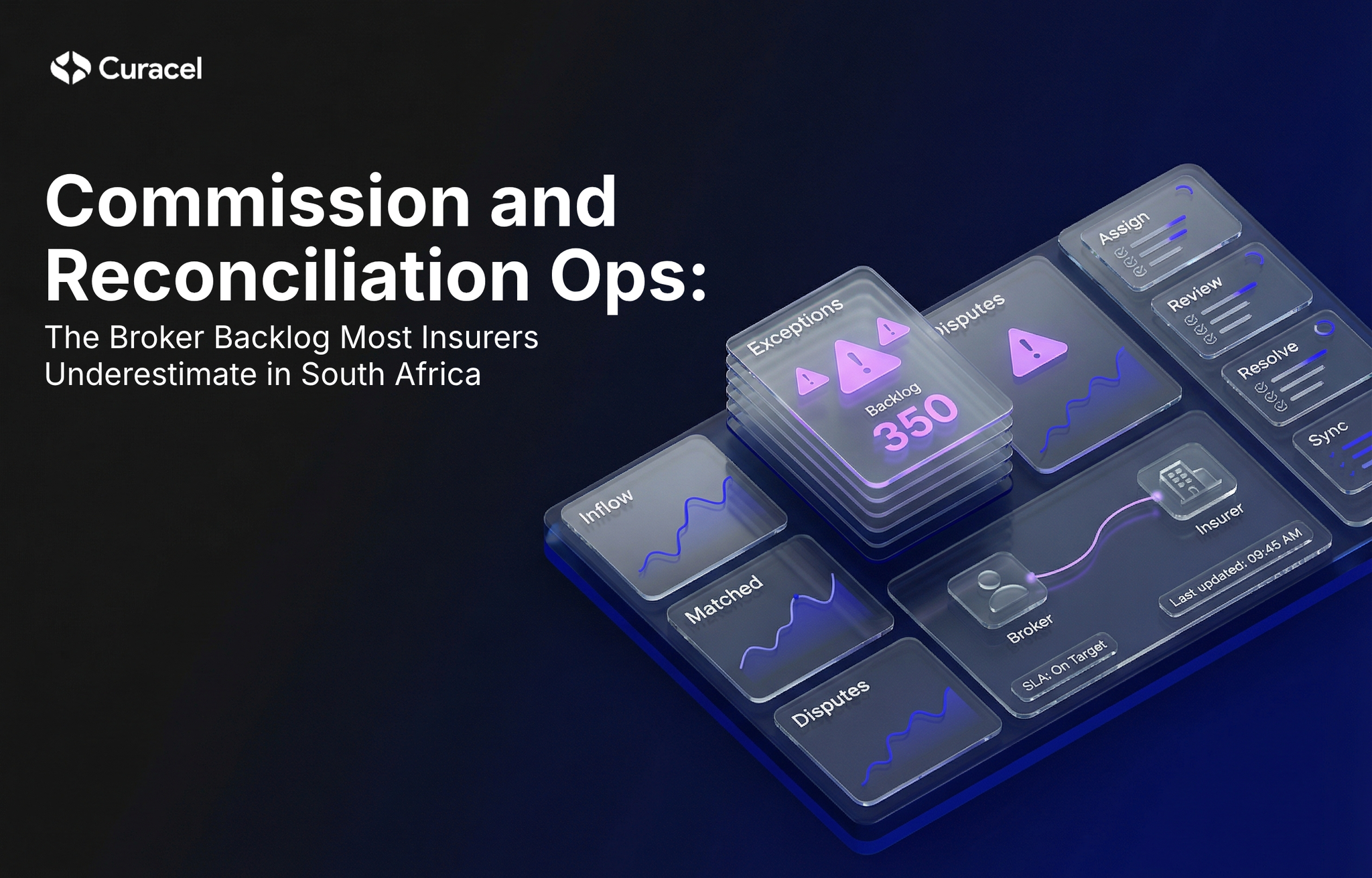5 Biggest Challenges of Insurance Companies in Nigeria
Experts say the biggest challenges facing Insurance companies in Nigeria majorly stem from perception issues.
From being perceived as not transparent with claims management to cumbersome paperwork, many Nigerians don't seem to fully understand how insurance works yet and as such do not consider it a priority.
An Abuja-based insurer, who have engaged a cross-section of Nigerians across socio-economic classes opined that, “From experience of talking to an average of 18 people weekly in all spheres of the economy, some of the reasons for prospects not buying insurance as perceived from interactions and as put forward directly by prospects are: lack of awareness, religious beliefs, personal economic restraints, insincerity of Insurance companies and claim payment avoidance, fear of failure or distress of all Nigeria financial systems, and measuring insurance returns against other investment returns.”
While these are some misconceptions still held by many Nigerians, insurance has really advanced across Africa especially with the evolution of AI-powered insurance infrastructure, like Curacel, that facilitate timely, seamless and transparent insurance claims management processes in real time.

Selling Insurance in Nigeria is an herculean task
Over the past years, insurance has remained a hard sell in Nigeria despite significant changes and advancements. However, embedded insurance holds the potential to address these challenges by integrating insurance products with existing services and increasing awareness, accessibility, and trust in the insurance sector.
By examining and addressing these challenges head-on, the Nigerian insurance industry can pave the way for sustained growth and development.
Why Is Insurance a Hard Sell in Nigeria?
On the sales side of insurance in Nigeria, several cultural and socioeconomic factors make it hard for insurance companies to connect to people and make customers out of them. Join us as we address some of these factors below:
- Lack of Awareness and Understanding: The general population needs more awareness and understanding regarding insurance products and their benefits. Many Nigerians need to become more familiar with the various insurance policies available, how they work, and the value they provide. This lack of knowledge makes it challenging to communicate the importance and relevance of insurance.
- Trust and Credibility Issues: Insurance companies in Nigeria face trust and credibility challenges. Some people have experienced difficulties obtaining insurance claims or perceive insurance companies as untrustworthy. Such adverse experiences and perceptions hinder the willingness of potential customers to engage with insurance companies and invest in their policies.
- Cultural and Religious Factors: Cultural and religious beliefs can significantly influence attitudes towards insurance in Nigeria. Some Nigerians view insurance as contradicting their cultural or religious practices, leading to resistance to adopting insurance as a financial instrument. Overcoming these cultural and religious barriers requires targeted education and awareness campaigns to address misconceptions and highlight insurance compatibility with personal beliefs.
- Perception of Financial Burden: Many Nigerians perceive insurance as an additional financial burden rather than a protective measure. With limited disposable income and numerous financial priorities, insurance is often considered a luxury rather than a necessity. This perception makes it challenging to convince individuals to allocate their resources toward insurance premiums.
- Limited Access and Distribution Channels: Nigeria's access to insurance services and distribution channels remains limited. This is particularly prevalent in rural areas where insurance companies need more presence and face challenges in reaching potential customers. The need for more convenient access hampers the ability to sell insurance policies effectively.
5 Biggest Challenges Facing Insurance Companies in Nigeria
Regulatory challenges and compliance issues
The regulatory environment in Nigeria presents significant challenges for insurance companies due to its complexity and constant changes. Navigating and complying with these regulations can be a daunting task.
Moreover, stricter regulations and compliance requirements place a heavy administrative burden on insurance companies, directly impacting their operational efficiency and ability to innovate.
As a result, compliance costs become substantial, diverting valuable resources away from core business activities and impeding growth.
Inadequate Infrastructure and Technology Adoption
In addition to regulatory challenges, the insurance industry in Nigeria grapples with infrastructure limitations and a sluggish pace of technology adoption. Outdated systems and reliance on manual processes are prevalent throughout the sector, resulting in inefficiencies, delayed service delivery, and heightened operational costs.
The absence of robust infrastructure, including reliable internet connectivity and sophisticated data management systems, further exacerbates these challenges. Consequently, insurance companies need help in streamlining their operations, providing seamless customer experiences, and harnessing advanced technologies like artificial intelligence and data analytics to drive innovation and efficiency.
High Rate of Fraud and Lack of Effective Prevention Measures
Fraudulent activities present a substantial challenge to insurance companies in Nigeria. The industry contends with issues such as false claims, policy manipulations, and identity theft, all of which have severe implications.
Not only do these fraudulent practices result in financial losses for insurance companies, but they also erode the trust placed in them by customers. The persistence of fraud can be attributed, in part, to insufficient preventive measures and weak enforcement.
To combat this issue effectively, it is imperative to implement robust risk management systems, enhance data analysis capabilities, and foster collaboration with relevant authorities. These steps can help insurance safeguard themselves and their customers from fraudulent activities, thereby bolstering trust and maintaining the industry's integrity.
Limited Product Diversity and Innovation
Nigeria's insurance market needs more product diversity, hindering its ability to cater to specific needs and demographics. Insufficient product innovation acts as a barrier, preventing the industry from attracting new customers and expanding its market reach.
Many of the traditional insurance products offered in the country must adequately address emerging risks or consumers' evolving needs.
To adapt to the changing landscape and tap into new market segments, insurers must prioritize the development of innovative products. These products should cover cyber risks, renewable energy, and microinsurance.
The Nigerian insurance industry can enhance its relevance, broaden its customer base, and capitalize on emerging opportunities by embracing innovation and tailoring products to meet evolving demands.

Underdeveloped Insurance Market and Low Insurance Penetration
Nigeria’s insurance market remains underdeveloped and is characterized by low insurance penetration rates compared to other countries. This can be attributed to several factors, including a lack of public awareness about insurance and its benefits, contributing to limited adoption.
Additionally, access to insurance services is constrained, and distribution channels are inadequate, further hindering market expansion. To increase insurance penetration, companies should implement comprehensive awareness campaigns to educate the public about the importance of insurance.
Simultaneously, efforts should focus on improving distribution channels and ensuring wider availability of insurance services.
How Curacel Is Helping Insurance Companies across Africa
Curacel’s embedded insurance infrastructure addresses many of the aforementioned challenges by integrating insurance offerings with existing products and services, in many innovative ways that we will be exploring.
Firstly, embedded insurance enhances awareness and accessibility by reaching customers at the point of need, eliminating the need for separate insurance purchases. This integration helps both insurance and non-insurance companies overcome the perception of insurance as an additional burden and increase customer convenience.
Embedded insurance also offers an opportunity to expand insurance access to underserved populations. Integrating insurance with mobile platforms or financial services makes it more accessible to individuals who previously had limited exposure to insurance options.
Furthermore, embedded insurance encourages innovation and product diversity. It allows insurance companies to collaborate with various industries, such as e-commerce, transportation, and healthcare, to develop tailored insurance solutions that cater to specific needs and customer segments.
Growth opportunities for insurance companies in Nigeria
Although insurance companies in Nigeria face enormous challenges, ranging from regulatory complexities and inadequate infrastructure to fraud, limited product diversity, and low market penetration, they can chart a course for growth with the right collaboration.
Collaborative efforts between insurance companies, regulators, and other stakeholders are crucial in streamlining regulations, promoting innovation, and strengthening enforcement against fraud.
Also, investing in insurance technology, enhancing product innovation, and expanding distribution channels will enable insurers to cater to specific needs and demographics. Lastly, comprehensive awareness campaigns, transparent practices, and efficient claims settlement will build trust and credibility among the public.
Contact our team today and let's help chart a new course to growth, innovation and improved customer experience with our AI-powered insurance infrastructure. Get started now
Subsribe to our newsletter to receive weekly content


























.svg)







